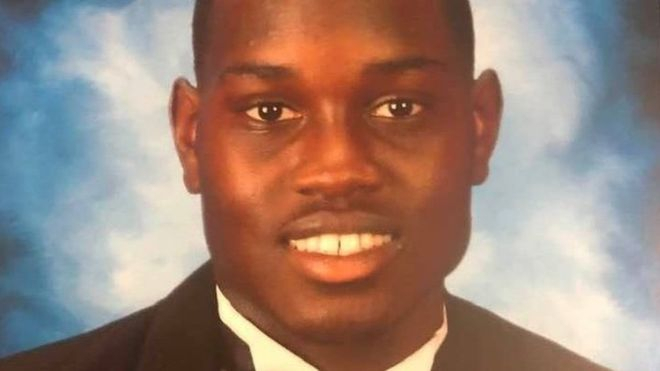The white man who shot Ahmaud Arbery has been sentenced to 10 years in prison. Travis McMichael has been ordered to serve his sentence in state prison.
The sentence announced by US District Court Judge Lisa Godbey Wood in the port city of Brunswick is largely symbolic as earlier this year McMichael was sentenced to life without parole in a Georgia state court for Arbery's murder.


McMichael Was Convicted in February
McMichael was one of three defendants convicted in February of federal hate crime charges. His father, Greg McMichael, and neighbor William "Roddie" Bryan had sentencing hearings scheduled later Monday, according to ABC News.
Two years ago, Arbery's killing made national news after a cellphone video showed the 25-year-old unarmed Black man being gunned down by three white men in Brunswick, Georgia. His killers were sentenced to life in prison earlier this month, after having been convicted of his murder in November 2021.
Prosecutors Showed Video Evidences
Travis McMichael and Greg McMichael were each sentenced to life in prison without the possibility of parole, plus 20 years. Meanwhile, William "Roddie" Bryan was sentenced to life in prison with parole.
In the federal trial, which lasted a week, prosecutors included evidence showing the men were behind the death of Arbery out of racial animus, which included their use of racial slurs and repeated racist characterization of Black people who committed alleged crimes.
Defense attorneys argued that McMichaels and Bryan pursued Arbery not because of his race but because of an earnest — though erroneous — the suspicion that Arbery had committed crimes in their neighborhood, according to USA Today.
In recent years, hate crimes have surged at a concerning rate. Just two people were convicted of federal hate crimes in Georgia from 2005 to 2019, according to the Bureau of Justice Statistics. Georgia did not have hate crime legislation until after Arbery's death.
Unlike the state murder charges, federal hate crime convictions also acknowledge the racist motivations of what many called a modern-day lynching, experts said. Experts have also said the case shows the Justice Department is taking prosecuting crimes motivated by hate more seriously, according to USA Today.
Read more









